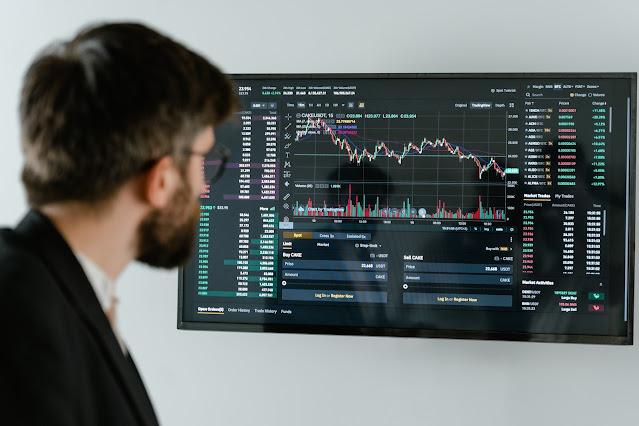 |
| Forex |
In this post, we'll look at some of the factors that influence currency exchange rates, starting with the most important: inflation.
Inflation
Inflation is defined as a currency's relative buying power compared to other currencies. For example, buying an apple in one country may cost one unit of currency, but buying the same apple in a country with higher inflation may cost a thousand units of a different currency. Inflation differentials are the reason why various currencies have varying purchasing power and, as a result, different currency rates. As a result, low-inflation countries tend to have stronger currencies than those with higher inflation rates.
Interest Rates
Inflation and currency rates are inextricably linked to interest rates. Interest rates are used by central banks in various countries to control inflation. Setting higher interest rates, for example, attracts foreign capital, which boosts local currency rates. However, if these rates are kept too high for too long, inflation will begin to rise, resulting in a currency depreciation. As a result, central bankers must change interest rates on a regular basis to balance the benefits and negatives.
The National Debt
The majority of countries use large-scale deficit financing to fund their budgets. To put it another way, they borrow to fund economic expansion. If government debt grows faster than the economy, it can raise inflation by preventing foreign investment from entering the country, both of which can depreciate a currency. A government may print money to finance debt in some instances, which can lead to inflation.
Political Constancy
A country with a stable political environment attracts more foreign investment, which helps to keep the currency rate constant. Poor political stability, on the other hand, devalues a country's currency exchange rate. Local economic drivers and financial policies are also influenced by political stability, two factors that can have long-term implications for a currency's exchange rate. Countries with more stable political systems, such as Switzerland, always have stronger and higher valued currencies.
Economic Well-being
Another factor that influences exchange rates is the economy's health or performance. For example, a country with low unemployment means its residents have more money to spend, which aids in the development of a stronger economy. A stronger economy draws more foreign investment, which helps to cut inflation and increase the country's currency exchange rate. It's worth mentioning that economic health is more of a catch-all word that includes a variety of other factors such as interest rates, inflation, and the trade balance.
International Trade Balance
The relative difference between a country's imports and exports is known as the balance of trade, or terms of trade. A positive trade balance, for example, suggests that a country's exports outweigh its imports. The influx of foreign currency is greater than the outflow in this situation. When this occurs, a country's foreign exchange reserves increase, allowing it to cut interest rates, boosting economic development and the local currency exchange rate.
Current Account Deficit
The current account deficit and the balance of trade are inextricably linked. The balance of trade of a country is compared to that of its trading partners in this scenario. When a country's current account deficit is larger than that of a trading partner, it can weaken its currency against that of that trading partner. As a result, currencies in countries with positive or low current account deficits tend to be stronger than those in countries with big deficits.
Speculation
If a country's currency value is predicted to rise, investors desire more of that currency. As a result, the value of the currency will rise, affecting the exchange rate. Speculators who anticipate the value of the Pound will rise in the future will demand a higher price now in order to profit. The price will rise as a result of the increased demand. As a result, rather than economic reality, financial market sentiments frequently determine currency rate adjustments. The Pound's value would likely climb if markets expect news that makes an interest rate hike more likely. Concerns that the UK will no longer be able to attract as many capital movements outside of the Single Currency led to the Pound's decline following Brexit.
Intervention by the government
Governments have a variety of options at their disposal to control their local currency exchange rate. To regulate currency exchange rates, central banks are known to adjust interest rates, buy foreign currency, influence local lending rates, print money, and utilise other measures. The main goal of controlling these variables is to create favourable conditions for a stable currency exchange rate, lower loan rates, more jobs, and strong economic growth.
Performance of political party
Performance of political parties is also important in attracting investors and influencing the currency rate. A political election, which takes occurred in almost every country, can have a substantial impact on the currency of that country. Elections are viewed by traders as a solitary instance of potential political instability and uncertainty, which often translates to increased volatility in the value of a country's currency. In most circumstances, forex traders would just watch pre-election polls to see what to expect and whether any top-level changes will occur. A change in administration can result in a shift in the ideology of the country's citizens, which usually translates into a new approach to monetary or fiscal policy, both of which are important determinants of a currency's value.







0 Comments